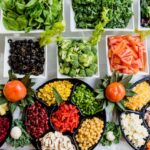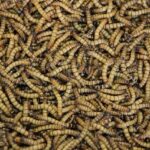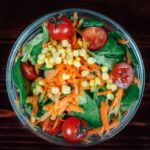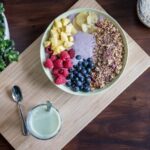Introduction: You’re probably looking at your diet and thinking, “I can’t believe I have to eat this much food. It doesn’t sound like it would be worth it.” But if you want to look great, you need to eat a healthy diet! Not only will eating a healthy diet make you look better, but it will also help keep your health improving over time. There are plenty of delicious ways to start eating healthier, so get started today and see the amazing results for yourself!
How to Look Better When You Eat.
Menu items that are healthy for you to eat include fruits, vegetables, whole grains, and low-fat dairy. You should also aim to consume a variety of foods throughout your day to get the most nutrients and vitamins.
How to Eat Healthy to Look Better
When eating healthy, you’ll want to follow these tips:
1. Eat more fruits and vegetables. Fruits and vegetables provide plenty of water soluble vitamins, minerals, antioxidants, fiber, and other nutrients that can help improve your complexion and overall health.
2. Eat more whole grains. Whole grains are high in fiber which can help keep you feelingfull after meals and help control weight gain or loss.
3. Eat less processed foods and additives. Processed foods have chemicals that may cause skin problems or other health problems such as obesity or diabetes mellitus.
How to Stay Healthy When You Eat.
Making healthy eating a part of your everyday routine is important for staying healthy. To keep your body in tip-top shape, make sure to eat a variety of vegetables and fruits, as well as small amounts of meat and sweets. Additionally, learn the basics of healthy eating by reading books or watching health documentaries. By following these tips, you can stay on track to being a healthier person!
Learn the Basics of Healthy Eating
It’s important to start with the basics when it comes to eating healthy. This means learning about what foods are good for you and how to cook them so they’re nutritionally sound. Reading cookbooks or watching cooking shows can help you get started on this journey, as can attending health clinics or workshops that focus on healthy eating. In addition, online resources like Health Ranger Guide or My Plate have lots of information on food topics that you can access quickly and easily!
Eat More Vegetables and Less Meat
When it comes to meal planning, it’s best not to overthink things–just go with what feels good! Choose vegetables that are high in fiber (to help keep your digestion moving), low in sugar (so you don’t get tired after eating too much), and rich in vitamins and minerals. Add meat sparingly and only when it is specifically requested by your hosts or dietary restrictions prohibit others from including more protein in their diet. By following these simple tips, you’ll be able to enjoy a nutritious meal without feeling weighed down!
Eat More fruits and Lesssweets
One way to stay away from sweet meals is to try insteadating fruit with nuts or seeds instead of added sugars – this will help decrease the number of calories you consume overall! Fruits also contain fiber which helps keep your digestive system moving; furthermore, they offer many nutrients that are beneficial for health such as antioxidants and vitamins A & C). by avoiding sugary snacks/munchies during travel, you’ll be able to stick to a healthier diet while still enjoying all the deliciousness our global cities have to offer!
How to Keep Your Health in Check When You Eat.
A healthy diet is key to keeping your health in check when you eat. You should aim to eat a balanced diet, which consists of both healthy and unhealthy foods. To maintain good health, it’s important to have enough fluids and avoid high-calorie foods.
Make sure You Have Enough fluids
Your body needs plenty of water to function properly and stay hydrated. Avoid drinking too much water or eating sugary drinks as these can lead to weight gain or dehydration. In addition, drink plenty of juices, sports drinks, sparkling waters, and tea whenever you feel thirsty.
Avoid high-calorie foods
When you consume high-calorie foods, your body may not be able to use the energy correctly and may startto experience problems like fatigue, dizziness, lightheadedness, headaches, or blurred vision. Instead, aim to consume moderate amounts of carbohydrates and proteins (those with at least 20 grams), while avoiding highly processed foods and overly sweetened drinks.
Conclusion
eating healthily can be a challenge, but with a little effort and common sense, you can stay healthy. In addition to making sure you have enough water and food throughout the day, it’s important to follow a well-balanced diet that includes plenty of vegetables and fruits, and less meat. Additionally, make sure you’re getting enough exercise by taking regular breaks between meals and working out at a fitness gym or in other ways. By following these simple tips, you’ll be on your way to looking and feeling better than ever before!









